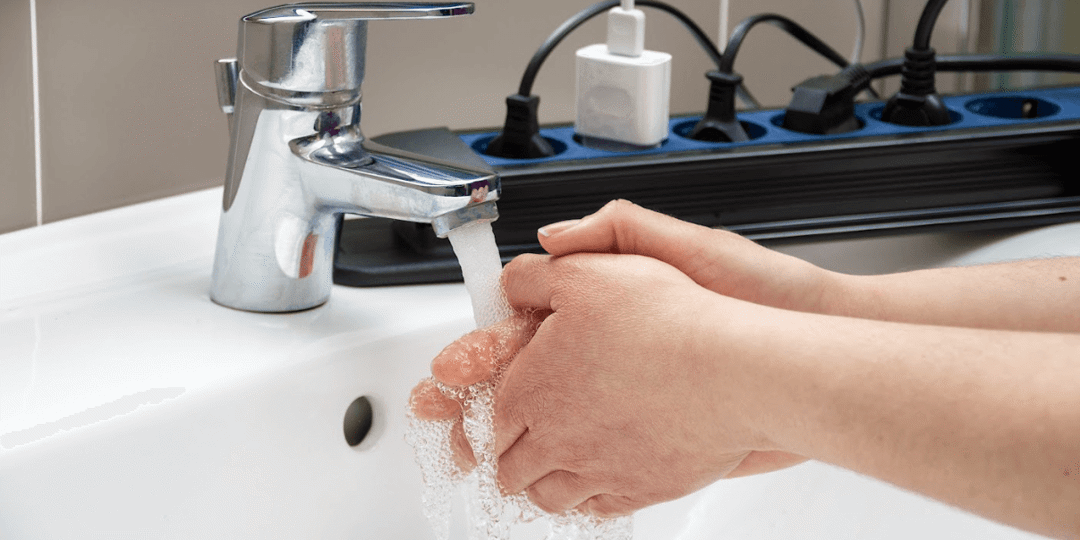Everyone knows that water and electricity don’t mix. Aside from being a safety risk for yourself and your family, water can also damage electrical equipment and outlets. But, accidents, spills, and other water-related issues happen, so it pays to learn about electrical safety around water.
Here’s what Indianapolis homeowners need to know about staying safe when dealing with electricity and water.
What Happens If Water Gets in an Electrical Outlet? The Risks
Sometimes water finds its way into electrical outlets, no matter how cautious we are. This is alarming since it can have severe consequences.
When water comes into contact with an electrical outlet, it can lead to:
- Electrical malfunction. As a conductor of electricity, water can disrupt the electrical flow inside an outlet, leading to malfunctions, short circuits, and power outages.
- Electric shock. Water can create a path for electricity to flow, increasing the risk of electric shock. If a person touches an electrified outlet or appliance that’s wet, they’re at risk for a potentially life-threatening shock.
- An electrical fire hazard. Can water in an electrical outlet cause a fire? It’s definitely possible. Water can cause sparks, arcing, or overheating that can ignite nearby combustible materials and lead to electrical fires. The flames can quickly spread, causing extensive damage to property and endangering lives.
So, You Got Water on an Outlet… What Now?
Always stay away from spilled water on an electrical outlet. If you do happen to spill water on an outlet or electrical appliance, don’t touch it! Turn off power to that outlet at the circuit breaker, unplug anything from the outlet, and let it dry completely before restoring power. This is also true for any frayed or broken outdoor wires when the ground is damp or wet.
Can Water Damage an Electrical Outlet?
Yes, water can cause significant harm to electrical outlets, resulting in the need for repairs or replacements. Long-term exposure to moisture can corrode metal parts within the outlet, leading to a compromised electrical connection. Over time, this can result in the outlet failing and posing a risk to anyone who uses it.
Additionally, water in an outlet can cause short circuits or power surges that damage any connected appliances or electronics.
Related Content: Electrical Safety Practices and Swimming Pools
Preventing Water-Related Electrical Accidents
Prevention is key when it comes to electrical safety around water. Here are some measures you can take to minimize the risks:
-
Keep water away from outlets. Whenever possible, keep water (and other liquids) away from outlets. That can mean anything from teaching kids not to splash water out of the bath to having a sump pump installed to minimize the risk of basement flooding that could reach outlets.
-
Upgrade to ground fault circuit interrupters (GFCIs): GFCIs are electrical safety devices designed to quickly shut off power in the event of a ground fault. These devices are particularly crucial in areas where water and electricity are most likely to come into contact, such as kitchens, bathrooms, and outdoor outlets. They’re required in new-build homes and new add-ons, but an older home may not have them. If the outlets in your bathroom and near your kitchen sink don’t have a red or white “reset” button on them, consider updating to GFCI outlets.
-
Install weather-resistant outlets. Use weather-resistant outdoor outlets, which are built with materials that resist damage from exposure to the elements. They’re less likely to crack, break, or come away from your home, thus keeping them sealed against water. Ensure that the weather cover (usually a boxlike plastic “door” over your outlet) is intact and not leaking.
-
Be cautious with electrical appliances. Keep electrical appliances away from water sources, and never operate them with wet hands or when standing on wet surfaces.
Safety First: Trust the Electrical Experts to Prevent Hazards
Now that you know how to stay safe and what to watch out for, you’ll know whether it’s time to call in a professional. Our team of qualified electricians can provide professional guidance and services to help ensure your electrical systems are safe and secure, including updating older homes to GFCI outlets. If you need help or have concerns about electrical safety around water, don't hesitate to contact Mister Sparky of Indianapolis at (317) 342-0959 or book an appointment online.















